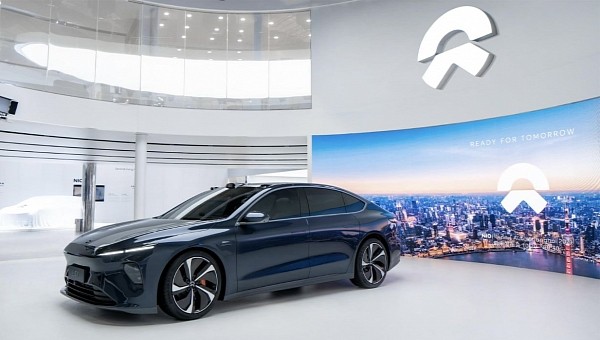There's an unspoken stigma against buying Chinese-built vehicles in the United States. Though Japanese, German, and Korean cars sell there in their millions, the U.S. is one of the few places in the world where Chinese cars have yet to gain mainstream popularity.
But this notion is far from the case across the pond in Europe. Over there, domestic auto-buyers are whistling a very different tune. The funny thing about it is many of them may be none the wiser. How do we know this? Let's take a look at the official report.
According to the PWC Network, battery EV vehicles in the European Market reached two million sales in the third quarter of 2022 for the first time ever, a 75 percent increase from the same period last year. But it's not entirely European and Japanese manufacturers fulfilling these orders as one might think. Instead, Chinese cars have also played a vital role.
Through partnerships with reputable brands like Volvo, the Chinese Geely Company has granted access to western markets in ways few Chinese automakers have been able to achieve. Through a trusted and respected proxy, it's all too easy to forget Polestars 1 through 6 are manufactured in China, not Sweden. Further collaborations between the Chinese State-run companies and established European names like MG have further fostered the influence of Chinese companies on European soil.
According to reports, as many as 800,000 battery EVs and hybrid vehicles could be departing Chinese factories bound for European cities by 2025. In a continent where domestic manufacturers are a point of national pride, it's starting to feel like a strange new reality. It's often difficult to differentiate between the actions of the Communist Party and the average Chinese factory worker who builds these cars. With that in mind, it's important not to meet this new reality with hostility.
Even so, cooperating with Chinese companies which intrinsically answer only to the Chinese state brings a set of dubious challenges into play that can't just be ignored. For the moment, at least, both parties seem to be getting along just fine.
According to the PWC Network, battery EV vehicles in the European Market reached two million sales in the third quarter of 2022 for the first time ever, a 75 percent increase from the same period last year. But it's not entirely European and Japanese manufacturers fulfilling these orders as one might think. Instead, Chinese cars have also played a vital role.
Through partnerships with reputable brands like Volvo, the Chinese Geely Company has granted access to western markets in ways few Chinese automakers have been able to achieve. Through a trusted and respected proxy, it's all too easy to forget Polestars 1 through 6 are manufactured in China, not Sweden. Further collaborations between the Chinese State-run companies and established European names like MG have further fostered the influence of Chinese companies on European soil.
According to reports, as many as 800,000 battery EVs and hybrid vehicles could be departing Chinese factories bound for European cities by 2025. In a continent where domestic manufacturers are a point of national pride, it's starting to feel like a strange new reality. It's often difficult to differentiate between the actions of the Communist Party and the average Chinese factory worker who builds these cars. With that in mind, it's important not to meet this new reality with hostility.
Even so, cooperating with Chinese companies which intrinsically answer only to the Chinese state brings a set of dubious challenges into play that can't just be ignored. For the moment, at least, both parties seem to be getting along just fine.



























